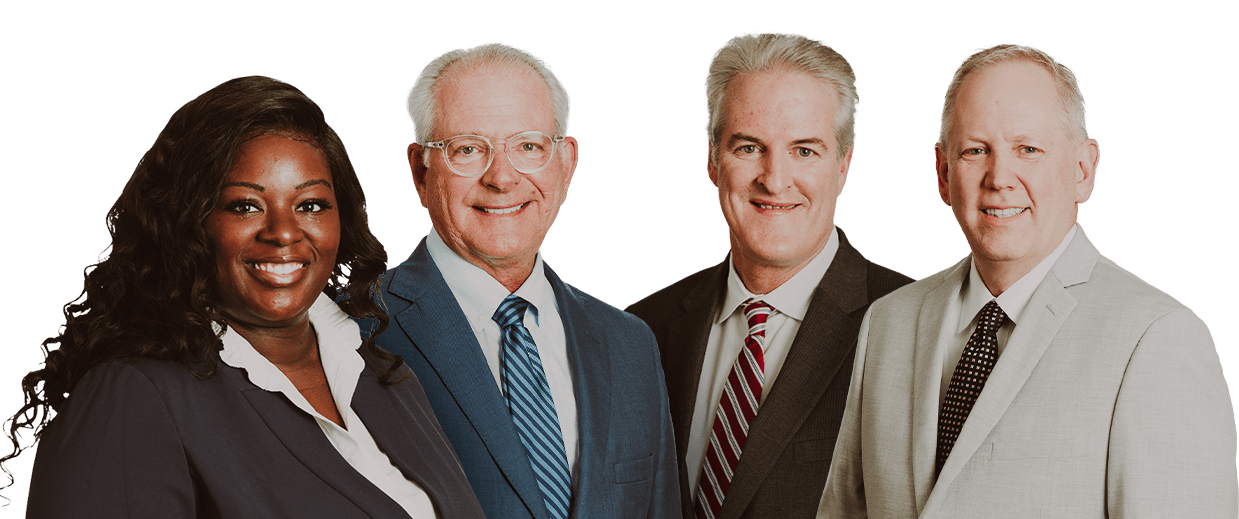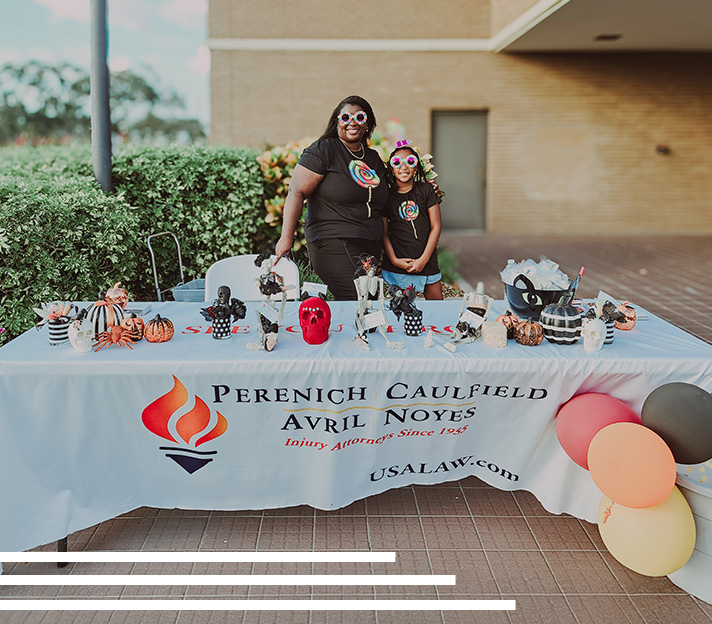Amputation Injury
Amputations happen more frequently than you might expect. Doctors in the U.S. perform about 185,000 amputations every year. Most of these amputations result from illnesses like vascular disease and diabetes.
But about 45% of amputations result from trauma. These amputations can happen in almost any accident, from motorcycle accidents to medical malpractice.
Here is some information about amputation injuries and the compensation you can seek if they were caused by someone’s negligence.
How Does an Amputation Injury Happen?
Amputation injuries happen in two ways:
Traumatic Amputation
Traumatic amputation happens when an accident severs your limb. In some cases, doctors may reattach the severed limb. But if they cannot, they will abandon reattachment and treat the stump.
Most amputation injuries in the U.S. affect the upper limbs, including:
- Fingers
- Hands
- Arms
A large number of amputation injuries occur because of workplace accidents. Workers using tools, heavy machinery, and construction equipment can easily injure their hands or arms.
By contrast, traffic accidents are a leading cause of lower-limb loss. Car accidents, in particular, can cause an amputation injury when a victim’s legs get trapped after a collision.
Surgical Amputation
Surgical amputation happens when your body tissue has been so severely damaged that doctors must remove it to save your life.
Some situations where this might happen include:
- Degloving injuries where the flesh gets torn from the body
- Crushing injuries where the bones get shattered
- Irreparable nerve or blood vessel damage
- Severe burns
Gangrene will set in when your soft tissue dies and doctors cannot repair it. You will become very sick as the tissue dies and decomposes. Instead of risking your life, doctors will often remove the damaged tissue.
How Do You Treat an Amputation Injury?
Once doctors have determined your limb needs amputating, they will remove the damaged tissue so your stump will only contain healthy tissue. This will often require x-rays and MRIs to determine the extent of the damage.
After removing the damaged tissue, doctors will prepare the stump. First, the doctors will tie off any blood vessels and cut any nerves running to the damaged tissue. Then, they will cut the bone if it has not already been severed. Finally, doctors will smooth the end of the bone to form a smooth stump that can support a prosthetic.
Once your doctor has prepared the soft tissue and bone, the doctor must decide whether to close the wound. Some doctors prefer to leave the wound open. This allows the doctor to monitor for infection, clean the wound, and remove additional tissue without making a new incision.
Eventually, you may get fitted for a prosthetic. This will return some function to your lost limb. But you will still have some permanent loss of function.
What Are Some Complications From an Amputation Injury?
Accident victims who suffer an amputation injury can also suffer from complications and side effects such as:
Infection
Infection happens when microorganisms get into your body. This can occur when you suffer an amputation injury in an accident involving vehicles, machinery, tools, or even road surfaces.
The toxic chemicals released by the bacteria as they multiply and kill your cells will cause some of your symptoms. Your body’s reaction to the invaders—including fever and swelling—will cause other symptoms. An infection can make you very sick—between the microorganisms and your body’s response to them.
Blood Clots
When you suffer a severe injury, your body will rush platelets and white blood cells to the injured area. These cells form a clot over the injury to stop the bleeding and protect the injury during healing.
If a blood clot breaks off, it can travel through your bloodstream and cause life-threatening conditions, including:
- Deep vein thrombosis
- Heart attack
- Stroke
- Pulmonary embolism
At the same time, doctors do not want to give you blood thinners because that could cause severe bleeding in your amputated limb.
Phantom Limb
Phantom limb happens when you experience sensations that appear to come from your amputated limb. Approximately 80% of amputees experience phantom limb sensations.
Phantom limb sensations are not psychological. They arise from the brain’s use of an outdated map of your body.
As the nerves in your stump get stimulated, your brain interprets the signals based on a map that includes your missing limb. Over time, your brain will build a new map and interpret the signals more accurately.
Emotional Issues
Approximately 30% of amputees report experiencing depression after losing a limb. Amputees also experience post-traumatic stress disorder (PTSD) and anxiety after an amputation.
These issues often arise because of the profound loss experienced by amputees. Just as you need to grieve after losing a loved one, many therapists believe amputees must grieve after losing a limb. Part of this process will include depression, PTSD, and anxiety symptoms.
How Do I Seek Compensation For an Amputation Injury?
After you lose a limb in an accident, you can usually seek compensation from the at-fault party by filing a personal injury lawsuit. In most situations, you must prove that the other party was negligent in causing your injury.
But for car accidents and workplace accidents, Florida law may limit your compensation. For workplace accidents, you will likely only receive workers’ compensation benefits. But you will receive these benefits regardless of who caused the accident since workers’ compensation is a no-fault system. If a third party caused your amputation injury at work, you might be entitled to file a third-party lawsuit to recover additional damages.
For car accidents, Florida uses no-fault insurance. Under no-fault insurance, you will file a claim with your no-fault insurer and receive benefits regardless of who caused the accident. You cannot sue the at-fault driver for additional compensation unless you exceed your no-fault policy limits or suffer a significant and permanent injury.
Amputation injuries often qualify as significant and permanent injuries. Loss of an arm or leg would likely deprive you of an important bodily function. But losing less than a limb might not qualify. For example, losing a finger or toe might not deprive you of an important bodily function.
Contact a Clearwater Personal Injury Lawyer For Help Recovering Damages From an Amputation Injury
Amputations deprive you of your body part. This can leave you disabled and disfigured. Contact the law offices of Perenich, Caulfield, Avril & Noyes Personal Injury Lawyers to schedule a free consultation to discuss the compensation you can seek for your amputation injury.

We treat you like family.
If you can’t come to us, we’ll come to you.
Representing Accident Victims in Tampa Bay since 1955



-
“Friendly knowledgeable and kept me informed about my case. Any offer, bill or question was readily answered. Would definitely recommend and refer people to Bryan Caulfield and his team!!”- Betty B.
-
“Mrs Bryant works her butt off to make sure you get what is do to you in medical and beyond! They won’t take your case if they don’t feel you haven’t been wronged.”- Christine R.
-
“Working with Mark Perenich on my auto injury case was an absolute game-changer. From the very beginning, he brought a level of professionalism, expertise, and care that immediately put us at ease.”- Kerry B.
-
“Lorrie and Allyson are phenomenal. I highly recommend them to anyone. It seemed like a never ending journey but I can’t thank them enough for diligently fighting my case with the greatest integrity, support and prayers.”- Former Client
-
“Allyson has been so helpful with navigating the disability process for my husband!”- Kaitlyn S.
-
“It honestly couldn’t have gone better. Pretty much perfect.”- Andreas B.
-
“From the first day we met this law group I felt very comfortable and knew we would be well taken care of. This was our first experience filing for SSD, and was not disappointed. The lawyers are awesome and very professional.”- Shari J.
-
“Very nice they worked with you. Never ignored me with my case. Always on top to work with you. Thank you so much for all that you have done to help me! Very highly recommend.”- Margarita O.
-
“My appointed attorney was Jacqueline, Bryant. She is very compassionate about her client and work. When it comes to negotiation, she's a Beast and she gets the job done.”- Alaina J.


We’ve been proudly serving Clearwater, St. Petersburg, and the Tampa Bay area for generations. As the first personal injury law firm in Clearwater, our dedicated legal team brings over 300 years of combined experience to each and every case. If you’ve been injured and need support, please reach outtoday for a free consultation, we are here to help you.



















